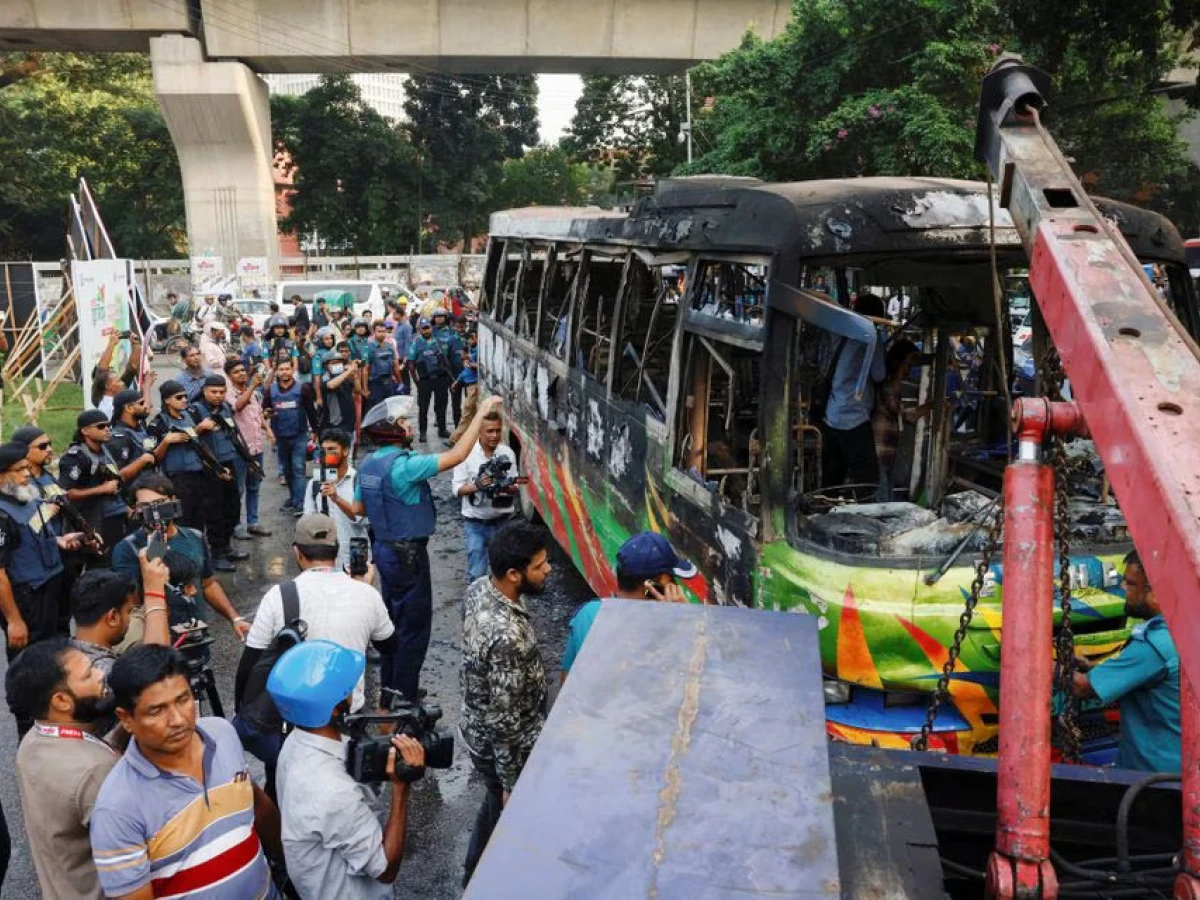
Two killed in anti-government protest in Bangladesh
The government denies the accusations but it is under pressure from Western countries to hold free and fair elections.
DHAKA, Oct 31 (Reuters) - Two people were killed and dozens injured in clashes in Bangladesh on Tuesday between anti-government demonstrators and police on the first day of a three-day protest to push for the resignation of Prime Minister Sheikh Hasina.
The main opposition Bangladesh Nationalist Party (BNP) called for the blockade of roads for three days in response to clashes between party supporters and police on Sunday in which one policeman was killed and more than 100 people were injured.
The party has been calling on Hasina to resign to allow elections scheduled for January to be held under a neutral caretaker government. Her government has rejected the demand.
A police official in the central district of Kishoreganj, where the clashes took place, said two protesters were killed and dozens of people, including 15 policemen, were injured.
“Clashes erupted when they attacked us," said the police official, who declined to be identified, adding that it was not clear how the two were killed.
"We had to fire rubber bullets to bring the situation under control," he said.
A BNP leader condemned the police, saying they were acting at the behest of the government.
"This brutal killing by the police is cowardly. Sheikh Hasina has given license to the police to kill indiscriminately to stop the movement to restore democracy," BNP Senior Joint Secretary General Ruhul Kabir Rizvi said.
Several buses were set on fire in the capital Dhaka and police in riot gear were posted at major road intersections.
“It’s very normal to be afraid during such strikes and blockades especially with these public buses being burnt. It seems we are deliberately facing risks by stepping out during these periods. But what else can we do?" Dhaka resident Adam Hossain asked.
Hasina came to power in 2009 and oversaw years of strong economic growth but she has been accused of rights violations, cracking down on free speech and suppressing dissent with the jailing of critics.
The government denies the accusations but it is under pressure from Western countries to hold free and fair elections. The United States has said it will restrict visas for Bangladeshis who undermine the democratic process.
Accusations of vote rigging and the suppression of the opposition, denied by the government, marred elections in 2014 and 2018.




